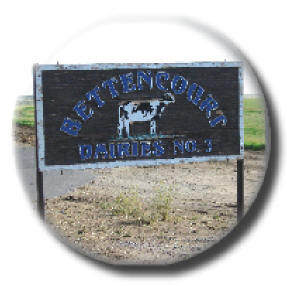|

“...the flush water has
improved greatly, the odor is down and the floors are not nearly as
slippery.”
Jerome, ID —
Prior to treatment with Pro-Act Microbial, Bettencourt Dairy #3 had
several frustrations with their waste system. There was very little
microbial activity in the lagoon, resulting in islands of solids
that increased in size and quantity. The separators required
frequent maintenance due to the solids build up, and the flush water
was thick, leaving the alleys slippery. In addition, there was a
fair amount of odor from the flush and lagoons.
Bettencourt began their Pro-Act Microbial treatment of Dairy #3 in the early
summer of 2006. In a recent interview, Acardio, the herdsman, reported that the
flush water has improved greatly, the odor is down and the floors are not nearly
as slippery. The cows are staying in the feed lanes longer and eating more
because the atmosphere is better.
The Set-Up
The flush water goes into a collection pit, over side hill separators,
into sand settling pits and then to lagoon #1. Top water goes from lagoon #1 to
#2, and the flush water is drawn from #2.
There are four diffusers in the system; two in lagoon #1 and two in #2. Our
microbial treatment, including the vitamins, minerals and growth accelerators in
their convenient water-soluble bags, are put into both lagoons.
The Progress
The separators, which were previously clogging and requiring frequent
maintenance, are now working better, requiring less maintenance and producing
more, better quality, solids.
One other predominant benefit of using Pro-Act is the dramatic reduction of
odor, something Acardio has noticed at both treated lagoons.
Stratification is occurring, so water quality has improved and continues to do
so, especially in lagoon #2 from where the flush water is drawn. The microbially
active water cleans the slime from the barn floors more effectively and dries
quickly with little odor. This stratification also results in excellent
irrigation water. Early reports say the hay crop under pivots has been better
than in the past. Experience tells us the same will be true with the corn.
Most of the islands of solids have vanished as the microbes have liquefied the
solids, and there is abundant microbial activity on the two lagoons.


|



